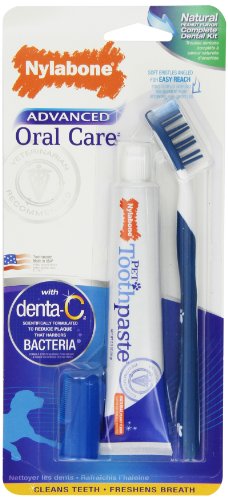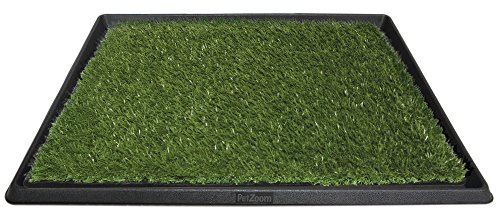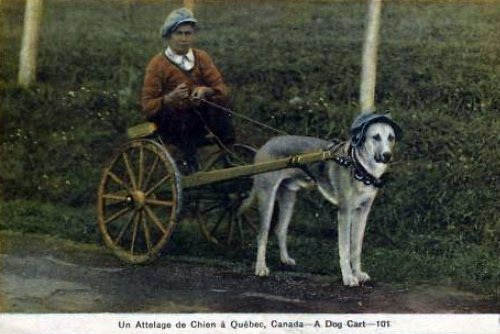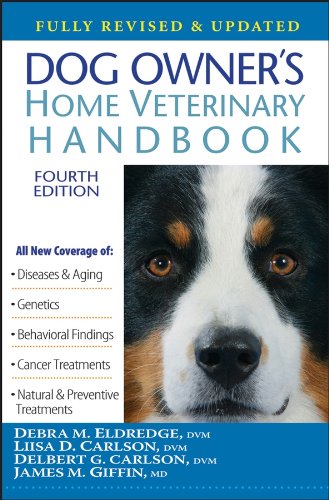
Today’s domestic dog is still closely related to the wolf. Like all wolves living in a pack, dogs must be part of a stable family and feel safe. Most domestic behavioral problems occur when the dog is confused about how to act/behave in different situations such as in your home or out on a walk.
It is recommended that you keep your dog confined (in a crate or in a room) no matter his age for at least the first month in your home. This will allow him to settle in more comfortably and adapt to your lifestyle. At the same time, confinement or crate training will reduce such misbehaviors as chewing and separation anxiety.
Here are a few general rules to help you to prevent misbehaviors when you bring your dog home:
Almost all dogs are naturally clean animals, meaning that the dog will not eliminate where he sleeps. If you keep your dog in a cage or room that is too large, he will eliminate in one corner and sleep in another. With this fact in mind, keeping your dog in a confinement area large enough to turn around and lie down in, he will be more motivated to hold it.
The general rule for elimination is the dog’s age plus one. (Example: the dog is 3 months old. This means that he can technically hold it for 4 hours) The dog will need to eliminate 15 to 20 minutes after eating, as soon as he wakes up and during or after playing. Most dogs can hold it for up to 10 hours after the age of 1.
A dog should only be fed twice a day, morning and evening. The dog needs to be shown who is the boss. In a wolf pack, the alpha dog or leader always eats first. Therefore you should and your family should eat before the dog. For a more unmanageable dog you may take it a step further and make him do obedience before you give him his food. Example: make the dog sit in front of you for one minute before you give him his bowl of food. Feeding your dog table food could give him health problems, such as diarrhea, as well as behavioral problems, such as begging for food at the table.
To become the Alpha leader in your house, you must practice some basic commands with your dog:
Play biting or puppy nipping should not be allowed or encouraged. This allows the biting to become harder and more painful as the dog gets older. Fetch is a highly recommended game. Keep two balls on you. Throw one of the balls. When the dog comes back with the first ball, show him the second ball so he will drop the first ball. When the first ball is dropped, you may throw the second ball. Repeat as often as you like or until the dog begins to show signs of boredom. When the game is played this way, the game will not turn into a game of tug of war, thus creating less of a chance of developing possible behavioral problems in the future.
Disciplining your dog 2 seconds after the misbehavior is too late. You must catch him in the ACT. You must never hit the dog. Hitting the dog may make him more aggressive toward strangers or other members of your family. Example: For many misbehaviors the WRONG THING TO DO is to hit the dog with a rolled up newspaper. One day, your children grab the newspaper to look at the pictures or a hidden word puzzle. The dog may DEFEND himself by attacking the child in fear of getting hit by the child’s newspaper. The area or cage for confinement should never be used as a punishment.
The dog should have many different bones and toys to chew on. If you see your dog chewing on an inappropriate item, simply say “NO” and direct his attention to an appropriate toy or bone.
If you are experiencing any problems with your new family member, don’t hesitate to contact your local trainer.
Document was prepared for the SPCA
By Sherry Bedard – Animal behaviourist
Article edited by Pets.ca and reproduced by permission.
 Dog Dental Health: Preventing Diseases and Plaque On Your Dogs Teeth
Your Dogs Dental HygieneOkay, so you can&rsquo
Dog Dental Health: Preventing Diseases and Plaque On Your Dogs Teeth
Your Dogs Dental HygieneOkay, so you can&rsquo
 How to Get Rid of Dog Smell in Your Home
As a pet lover, I have a dog
How to Get Rid of Dog Smell in Your Home
As a pet lover, I have a dog
 Best Dog Breeds For Children
The best way to have a family friendly dog is to love i
Best Dog Breeds For Children
The best way to have a family friendly dog is to love i
 20 Jobs Dogs Have Preformed
20 Jobs Dogs Have Preformed
Most people think of th
20 Jobs Dogs Have Preformed
20 Jobs Dogs Have Preformed
Most people think of th
 Symptoms of Diabetes in Dogs
Diabetes is a common health problem in dogs.&n
Symptoms of Diabetes in Dogs
Diabetes is a common health problem in dogs.&n
Copyright © 2005-2016 Pet Information All Rights Reserved
Contact us: www162date@outlook.com